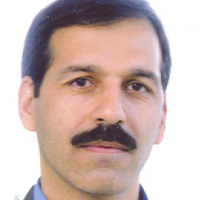Ordoliberalism and State Building in Germany
Author(s):
Article Type:
Research/Original Article (دارای رتبه معتبر)
Abstract:
Germany is recognized as one of the world's most powerful economies, with unique experiences in economic modeling and institutional building. Ordoliberalism is a German socioeconomic school which believes that the country can maintain its ideals of social justice, and at the same time, establish a unique governance model to substitute Anglo-Saxon classical liberalism in the context of market economy and neoliberalism, by avoiding the pitfalls of "market fundamentalism." In fact, the German nation-state has been confronted with internal and external crises and conflicts since the unification of German-speaking political units during Bismarck's time in 1871. Nevertheless, Germany is a distinctive case regarding political economy and state building. Germany introduced the unique model of state building in the form of ordoliberlism as a modified version of liberalism in favor of social ideals. Based on Hegel's definition, one can explain that ordoliberalism creates a separating wall between "the political state" and the social individual based on the market processes, thus safeguarding the "civil society”, for which the institutions of the state are built in Germany. Ordoliberalism emerged during a severe crisis of liberal political economy in the Weimar Republic of Germany in the late 1920s. In fact, there was a sort of concerted political effort to restore the rationality of the free economy in the behavior of the state as well as the behavior of the market participants. Ordoliberalism— based on the teachings of ancient Greece, Christianity, and the Age of Enlightenment— became the theoretical backbone of the German social market economy. At the time, the liberal governance was presented as the necessary foundation of the free economy and as a force that could provide the framework of expected conditions for the intervention of the "invisible hand" in the economy to preserve its characteristic of ‘being free”.If economic liberty under liberalism means economy is completely free from any government intervention, there is the risk of the creation of monopolies and oligopolies, and the expansion of poverty in society by “Commodification of Rights”. In its historical process, ordoliberalism in Germany prevented such an outcome by establishing the civil society (i.e., the external state in Hegel's terminology) and reforming liberalism in favor of the common good while still contributing to the formation of governmental institutions in Germany. Earlier ordoliberals had argued in favor of ‘strong government’, which could not be manipulated by corporate pressure, and underscored the concept of ‘social market economy’. They cautioned that economic growth enhancing policies should not be at the expense of social programs. Domestically, Germany utilized democratic and fair mechanisms such as the presence of unions, state intervention in the equitable distribution of income and wealth, and preventing wealth accumulation by the cartels, based on respect for free-market principles. Principally, the paper aims to examine the evolutionary process of the German state during the 20th century by focusing on political economy and ordoliberalism. The primary goal is to explain how the ordoliberal system in Germany has been able to strike an optimal balance between the state and markets despite scores of ebbs and flows in the political history of Germany. At the same time, the article explores how the ordoliberal system has been integrated in the global neoliberal order while coordinating internal political forces in an effective way to build a democratic order. In short, the authors try to investigate the role of German ordo-liberalism in the historical process of the evolution of the state in Germany. The two research questions to be answered are as follows: 1. What are the foundations and characteristics of the German state? 2. From the point of view of state building based on Hegel's theory of state, to what extent has ordoliberalism influenced German politics? Ordoliberalism, as a variant of neoliberalism (or a state-centric neo-liberalism) has coordinated Anglo-Saxon liberalism for the benefit of the "collective good", and ordoliberal ideas have influenced postwar institution-building in Germany. In the research hypothesis, it is postulated that the strong state could regulate free markets to guarantee competition and social justice.This study introduces the main elements of "neoliberalism" as a German interpretation of neoliberalism using a historical approach. The findings of this article demonstrate that ordoliberalism, as the convergence of three intellectual and practical traditions (i.e., ancient Greek, Christianity, and Enlightenment) has successfully created the intermediate space between individuals in society and governmental institutions that Hegel had envisioned while adapting neoliberalism in favor of the social good. After World War II, Germany was integrated into neoliberal international order and reasserted its economic power as part of the capitalist world but aspired to be a model of ‘organized capitalism.’ To achieve the research objective, Hegel's theory of the state is used. First, the authors explain the main components and definition of the state, as well as the primary features of each of these components. Then, Germany's main efforts toward state-building are examined through a historical lens. Finally, the conclusion highlights the role and contribution of ordoliberalism in creating and developing the German state institutions.
Keywords:
Language:
Persian
Published:
Political Quartely, Volume:53 Issue: 1, 2023
Pages:
165 to 187
https://magiran.com/p2619570
دانلود و مطالعه متن این مقاله با یکی از روشهای زیر امکان پذیر است:
اشتراک شخصی
با عضویت و پرداخت آنلاین حق اشتراک یکساله به مبلغ 1,390,000ريال میتوانید 70 عنوان مطلب دانلود کنید!
اشتراک سازمانی
به کتابخانه دانشگاه یا محل کار خود پیشنهاد کنید تا اشتراک سازمانی این پایگاه را برای دسترسی نامحدود همه کاربران به متن مطالب تهیه نمایند!
توجه!
- حق عضویت دریافتی صرف حمایت از نشریات عضو و نگهداری، تکمیل و توسعه مگیران میشود.
- پرداخت حق اشتراک و دانلود مقالات اجازه بازنشر آن در سایر رسانههای چاپی و دیجیتال را به کاربر نمیدهد.
In order to view content subscription is required
Personal subscription
Subscribe magiran.com for 70 € euros via PayPal and download 70 articles during a year.
Organization subscription
Please contact us to subscribe your university or library for unlimited access!



